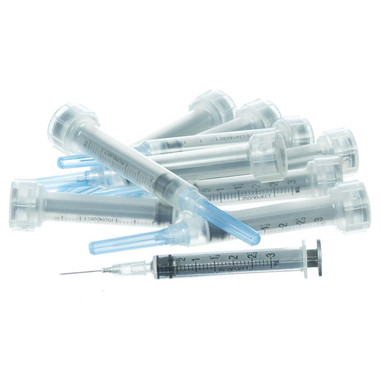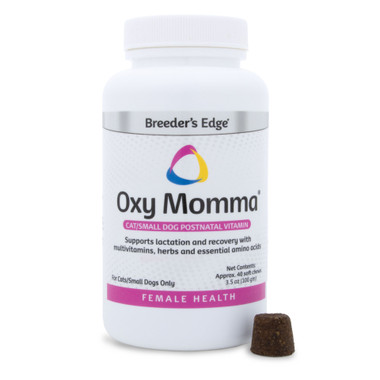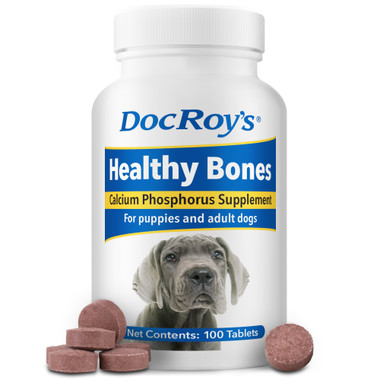Can dogs eat strawberries?
Estimated 0 min read

Dog with strawberry
Picture this: a warm summer day, a bowl of fresh strawberries, and your furry best friend by your side.
As you reach for a juicy berry, you pause, wondering if it’s safe to share this sweet treat with your eager pup.
You’re not alone in this moment of uncertainty. Many dog owners find themselves questioning which human foods are appropriate for their canine companions. When it comes to strawberries, the answer may surprise you.
These little red gems offer a host of potential health benefits for dogs. But there are also a few important things to keep in mind.
Read Before Giving Dogs Strawberries
- Strawberries are generally safe and healthy for dogs when given in moderation, but leaves and stems should be removed
- Strawberries offer health benefits for dogs, including vitamin C, fiber, and antioxidants, but should only make up 10% of their diet
- Some dogs may have sensitivities to strawberries, and processed strawberry products with added sugars or artificial ingredients should be avoided
Are strawberries safe for dogs?
The good news is that for most dogs, strawberries are a perfectly safe – and even healthy – addition to their diet.
Strawberries are considered non-toxic to dogs, which means that unlike some other fruits (such as grapes or raisins), they won’t cause any immediate harm if your pup sneaks a bite or two. In fact, the ASPCA has given strawberries the green light as a dog-friendly snack!
But before you start tossing berries to your eager companion, there are a few important things to keep in mind!
How to Feed Strawberries to Dogs Safely

Stems and strawberry tops are not the best for your dog
While strawberries themselves are safe, the leaves and stems can be tough for dogs to digest. These fibrous parts can cause gastrointestinal upset or even lead to a dangerous blockage if consumed in large quantities. So when preparing strawberries for your pup, always remove the leafy tops and cut the fruit into bite-sized pieces to prevent choking.
It’s also crucial to introduce any new food slowly and in moderation. Just like humans, some dogs may have sensitivities or allergies to certain ingredients – even natural ones like fruit. When offering your dog strawberries for the first time, start with just one or two small pieces and keep a close eye out for any adverse reactions like vomiting, diarrhea, or itchy skin. If your furry friend tolerates this little taste test well, you can gradually increase the amount over time.
How Many Strawberries Can a Dog Eat?
As a general rule of thumb, treats should make up no more than 10% of your pup’s daily calorie intake . That includes healthy options like fresh fruit. For a small dog, a whole strawberry a day is plenty. Larger breeds can handle a few more, but it’s always best to err on the side of caution. Too many berries in one sitting could lead to an upset tummy or diarrhea due to the fruit’s natural sugar content.
If you’re still on the fence about whether strawberries are right for your four-legged companion, don’t hesitate to consult with your veterinarian. They can provide personalized guidance based on your dog’s unique health needs and dietary restrictions.
Now that we’ve established strawberries as a safe snack option, you might be wondering about the potential health benefits they offer.
Health Benefits of Strawberries for Dogs
Not only are strawberries a safe snack for most dogs, but they also offer a variety of impressive health benefits. These little powerhouses are packed with nutrients that can support your furry friend’s overall wellness in several key ways.
Vitamin C for a Strong Immune System

Strawberries provide Vitamin C. Fiber and Antioxidants for your dog
Strawberries are an excellent source of vitamin C, a powerful antioxidant that plays a crucial role in supporting your dog’s immune system. Vitamin C stimulates the production and function of white blood cells, which are the body’s first line of defense against invading pathogens. It also helps to neutralize oxidative stress, which can damage cells and contribute to the development of chronic health issues over time. By providing your dog with a natural source of vitamin C, strawberries can help keep their immune system functioning at its best.
Fiber for Digestive Health
Another key benefit of strawberries for dogs is their fiber content. Fiber is essential for maintaining a healthy digestive system, as it helps to regulate bowel movements and keep things running smoothly. In addition to promoting regular digestion, the fiber in strawberries can also help your dog feel fuller and more satisfied after meals. This can be especially useful for pups who are trying to maintain a healthy weight or those who tend to beg for extra treats throughout the day. By incorporating fiber-rich foods like strawberries into your dog’s diet, you can help them stay feeling full and content between mealtimes.
Antioxidants for Overall Health
Strawberries are also rich in antioxidants, which are compounds that help to protect the body’s cells from damage caused by free radicals. Free radicals are unstable molecules that can accumulate in the body over time, contributing to the development of chronic health problems like cancer, heart disease, and cognitive decline.
The specific antioxidants found in strawberries include ellagic acid, anthocyanins, and quercetin. These powerful plant compounds have been shown to have anti-inflammatory, anti-cancer, and neuroprotective properties in various studies. By feeding your dog strawberries on a regular basis, you can help to support their overall health and well-being by providing them with a natural source of these beneficial antioxidants.
Low Calorie Treat
Finally, strawberries make an excellent low-calorie treat option for dogs who are watching their waistlines. One medium strawberry contains only about 4 calories, which means you can indulge your pup’s sweet tooth without derailing their diet. This is especially important for dogs who are prone to obesity or those who are already overweight.
By choosing low-calorie snacks like strawberries instead of high-fat, high-sugar alternatives, you can help your furry friend maintain a healthy body weight and reduce their risk of developing obesity-related health problems down the line. Plus, the natural sweetness of strawberries means that your dog will still feel like they’re getting a special treat, even though it’s actually good for them!
What are the risks of giving strawberries to dogs?

Slowly introduce strawberries to your dog
While strawberries are generally safe and healthy for dogs to eat, there are a few situations where they may not be the best choice. It’s important to be aware of these potential concerns so that you can make informed decisions about your pup’s diet and keep them feeling their best.
Digestive Sensitivities
Just like humans, some dogs may be more sensitive to certain foods than others. While strawberries are non-toxic and generally well-tolerated, some pups may experience digestive upset after eating them. This can manifest as symptoms like vomiting, diarrhea, or abdominal discomfort.
If your dog has a history of food sensitivities or allergies, it’s especially important to introduce strawberries slowly and in small amounts. Watch for any signs of adverse reactions, and if you notice any concerning symptoms, discontinue feeding strawberries and consult with your veterinarian.
The digestive issues associated with strawberries are often due to their relatively high fiber content. While fiber is generally beneficial for digestive health, too much too quickly can lead to gastrointestinal distress. The natural sugars found in strawberries can also contribute to loose stools or diarrhea in some dogs.
Overindulgence

Don’t give your dog too many strawberries
Another potential issue with feeding strawberries to dogs is the risk of overindulgence. While these little fruits are low in calories and generally healthy, they should still be treated as a snack or treat rather than a major part of your pup’s diet.
Feeding your dog too many strawberries in one sitting can lead to digestive upset, even if they don’t have any particular sensitivities. The high fiber and sugar content can be especially problematic in large amounts. This can lead to symptoms like diarrhea, vomiting, and abdominal pain.
Added Sugars and Artificial Ingredients
While fresh, whole strawberries are a healthy snack option for dogs, the same can’t be said for all strawberry-flavored products. Many commercially available strawberry treats, such as jams, jellies, and syrups, contain added sugars and artificial ingredients that can be harmful to dogs.
Excess sugar consumption can contribute to obesity, dental problems, and even diabetes in dogs over time. Artificial sweeteners like xylitol, which is sometimes used in sugar-free products, can be even more dangerous. Xylitol is highly toxic to dogs and can cause rapid insulin release, leading to life-threatening hypoglycemia (low blood sugar).
Other artificial ingredients, such as preservatives, flavorings, and colorings, can also be problematic for some dogs. These substances can trigger allergic reactions or sensitivities, leading to skin irritation, digestive upset, and other health issues.
To keep your pup safe, it’s best to stick with fresh, whole strawberries and avoid any processed strawberry products or treats that contain added sugars or artificial ingredients. If you’re unsure about the safety of a particular product, always check with your veterinarian before offering it to your dog.
Potential Choking Hazard
 Finally, it’s worth noting that whole strawberries can pose a choking hazard for some dogs. Particularly smaller breeds or those who tend to gulp their food without chewing properly. The firm, fibrous texture of strawberries can be difficult for some dogs to break down, leading to a risk of obstruction or choking.
Finally, it’s worth noting that whole strawberries can pose a choking hazard for some dogs. Particularly smaller breeds or those who tend to gulp their food without chewing properly. The firm, fibrous texture of strawberries can be difficult for some dogs to break down, leading to a risk of obstruction or choking.
To minimize this risk, it’s important to cut strawberries into small, bite-sized pieces before offering them to your dog. You may also want to consider mashing or pureeing the berries for very small dogs or those with dental issues that make chewing difficult.
As with any new food, it’s always a good idea to supervise your dog closely when offering strawberries for the first time. Watch for any signs of difficulty chewing or swallowing, and be prepared to intervene if necessary.
By keeping these potential concerns in mind and taking appropriate precautions, you can help ensure that your dog enjoys the many benefits of strawberries without any unwanted side effects. Of course, if you have any specific questions or concerns about your individual pup’s dietary needs, don’t hesitate to reach out to your veterinarian for personalized guidance.
Banixx for Dog Lovers
If you’re looking for more expert guidance on how to keep your pup happy and healthy, Banixx is here to help.
From dietary advice to product recommendations, our team is dedicated to providing you with the information and resources you need to make informed decisions about your dog’s well-being.
So why not explore ourblogfurther and discover more ways to show your four-legged friend just how much you care? If you are interested in how to maintain yourdog’s nails/claws, or handle anear infection, we cover that. Or are you interested in more quirky items ? such ashow long can a dog go without peeing, orWhy does my dog drink from a toilet? Yes, delve into those areas for you too!
Sources
https://www.purina.com/articles/dog/feeding/can-dogs-eat/strawberries
https://www.thewildest.com/dog-nutrition/can-dogs-eat-strawberries
https://www.usatoday.com/story/news/2022/07/02/can-dogs-eat-strawberries/7749785001/
https://www.volharddognutrition.com/blog/can-dogs-eat-strawberries
https://www.mypetsensitivity.com/blogs/news/explained-can-dogs-eat-strawberries-strawberry-leaves
https://www.petmd.com/dog/nutrition/can-dogs-eat-strawberries
akc.org/expert-advice/nutrition/can-dogs-eat-strawberries
draxe.com/pet-health/can-dogs-eat-strawberries


















